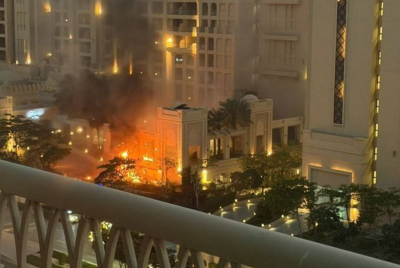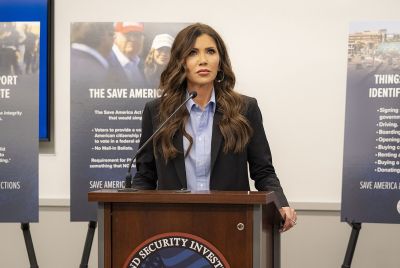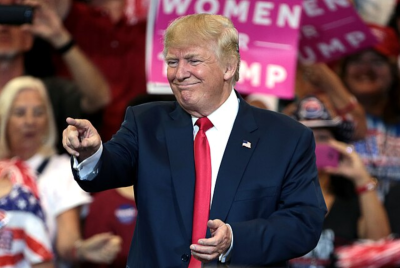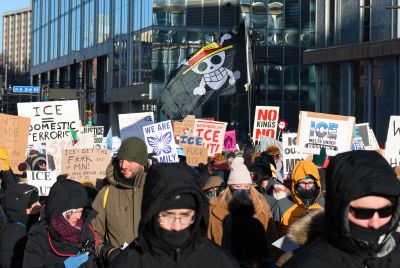Palestinian Voices Decry the 'Apartheid' of Their People as Israel's 'Retaliation' Continues
Led by the Palestinian ambassador to the UK, Husam Zomlot, political and media voices are underscoring the long-running plight of the stateless Palestinians.
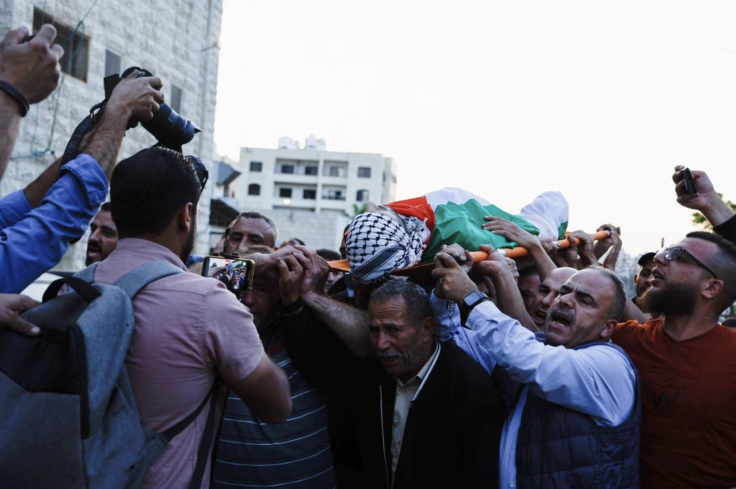
As the situation in Israel and Palestine unfolds, the Palestinian ambassador to the UK, Husam Zomlot, has emerged as a strong advocate of the oft-neglected Palestinian position on the issue.
The surprise attack by Hamas militants into Israel, breaching the highly militarised, Israeli-controlled border fence around the Gaza Strip has left more than 1,400 Israelis dead so far, with 150 Israeli hostages believed to be in Gaza. Israel's retaliation has claimed 2,750 Palestinian lives, with bombardment ongoing.
Almost one million Gazans have been displaced as Israel has ordered an evacuation towards the south of the enclave after ordering a "complete siege" with water, food, fuel and electricity cut off. UN spokesperson Stephane Dujarric said that it is "impossible for such a movement to take place without devastating humanitarian consequences".
Zomlot represents the Palestinian Authority and is not linked to Hamas, which is considered a terrorist organisation by the UK. He has stated that this latest military operation comes after a sustained period of violence against Palestinians.
Asked by Sky News whether he would condemn the loss of Israeli lives, Zomlot, who did elsewhere express sorrow over the loss of human life, responded that there is an "obsession" in the media with "condemning the victims (i.e. the Palestinians) and blaming the victims...and condemning the occupied, the colonised, the besieged."
Zomlot went on to state that "this dehumanisation of Palestinians has got to stop immediately."
Referring to the Israeli blockade of Gaza that has been in place since 2005, the ambassador revealed that "two million people have been taken hostage in Gaza by Israel for the last 16 years" and that Human Rights Watch had labelled this "apartheid".
Making his point about what he sees as misleading news coverage, Zomlot asked: "Have you ever asked an Israeli spokesperson to condemn that?"
Speaking on Israel's control over what is internationally known as the 'Occupied Palestinian Territories', Zomlot continued: "There is no symmetry between the occupied and the occupier. The colonised and the coloniser. Enough."
Echoing language used by Human Rights Watch, the ambassador said: "(Gaza) is the biggest open-air prison in the world. Every once in a while, Israel visits them with its fire - from the air, from the sea, from the land — killing thousands."
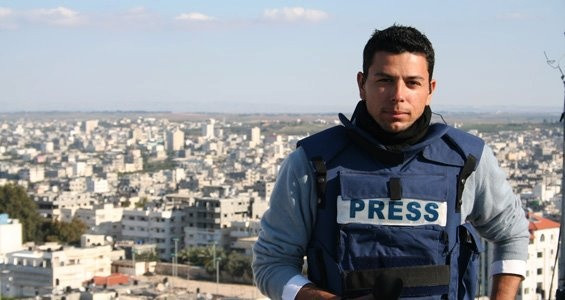
Zomlot's remarks also laid bare the personal toll he has suffered from this latest Israeli military operation: "I called my nephew this morning (who lives in Gaza)...he said, 'uncle, we're dying anyway'."
Fast forward three days later, and it was revealed during a BBC interview with Zomlot that his nephew and most of the rest of the family had perished when their building was hit by an Israeli missile. Two infants remain in hospital in critical condition.
Speaking on the immediate backdrop to the situation, he told Sky: "You've seen what happened in Al Aqsa Mosque (with the status quo that only Muslims are allowed to pray there violated). You've seen (Israeli civilians) spitting on Palestinian Christian worshippers only last week."
Regarding the West Bank, he said: "(Palestinian) land is confiscated. They are now subjected not only to Israeli army brutality, but to settler militias, in Huwara, in Nablus, in Khalil (Hebron), in Jerusalem."
He concluded that "this is a system of racial domination on top of a military occupation compounded by colonisation".
Zomlot stated: "Israel has grown for 75 years, accustomed to the fact that it is the exception to the rule, that it is above the law, that it has complete immunity granted by the US, by the UK and by the rest of the West."
Zomlot said: "We are a people under oppression." He also demanded: "We seek freedom! We seek independence and sovereignty. We seek to take back our land."
When asked by Kirsty Wark of the BBC whether the Hamas attack had derailed the two-state solution, he clarified that he does not speak for Hamas, nonetheless stating: "It is not Hamas that has derailed the two-state solution; it is Israeli colonial settlements that have derailed the two-state solution. (It is) the lack of international pressure (that has derailed it)."
How Did We Get Here?
A somewhat complementary analysis to that of Zomlot's emerged from an unlikely source. Daniel Levy has worked as an Israeli negotiator and advisor to Prime Minister Ehud Barak.
Levy spoke to the BBC, reflecting on Israel's increasingly hard-right stance: He said: "The reason, I think, that you can have an Israeli government of such extremity is that Israelis have been given the message by their friends in America, Britain and the West, that it's okay; you can do anything to the Palestinians and we'll have your back. And that leads to Israel making the wrong choices...and telling itself that it can deal with (the Palestinians)."
Levy further illustrated how this "leads to the kind of hubris, the kind of ignoring of reality, which I think has led to a deep decomposition within the system".
Referring to the significant intelligence failure in Israel, he said: "Today and yesterday, Israelis are waking up to a psychological confusion and shock, the likes of which is unprecedented."
Egyptian-American journalist, Ayman Mohyeldin, who is affiliated with the US network MSNBC, is another voice providing historical context.
Emphasising that Gaza was already cut off from the world before the current siege, Mohyeldin believes: "There was a disengagement (in 2005). There was a removal of settlements. There was a removal of the Israeli military inside Gaza. (But) there wasn't an ending of the occupation."
"As Palestinians describe it, you're moving the prison guards from inside the prison to the outside walls....you haven't given them their freedom. They couldn't freely trade (and set up an economy)."
Mohyeldin also reflected on Hamas' strength, saying: "Israel has gone into Gaza (five times in the last 15 years) and tried to destroy (Hamas), its military power, everything it has; and every time, Hamas has shown itself to be resilient."
Mohyeldin opines that this is because Hamas "claim(s) to be a resistance movement to Israel's occupation".
Mohyeldin's analysis suggests that the solution to the problem will not come from attempts to neutralise Hamas. That assessment seems to bolster Zomlot's position that "freedom" for the Palestinians is the only way out, as the human toll of this latest round of military action keeps climbing in the Holy Land.
© Copyright IBTimes 2025. All rights reserved.



